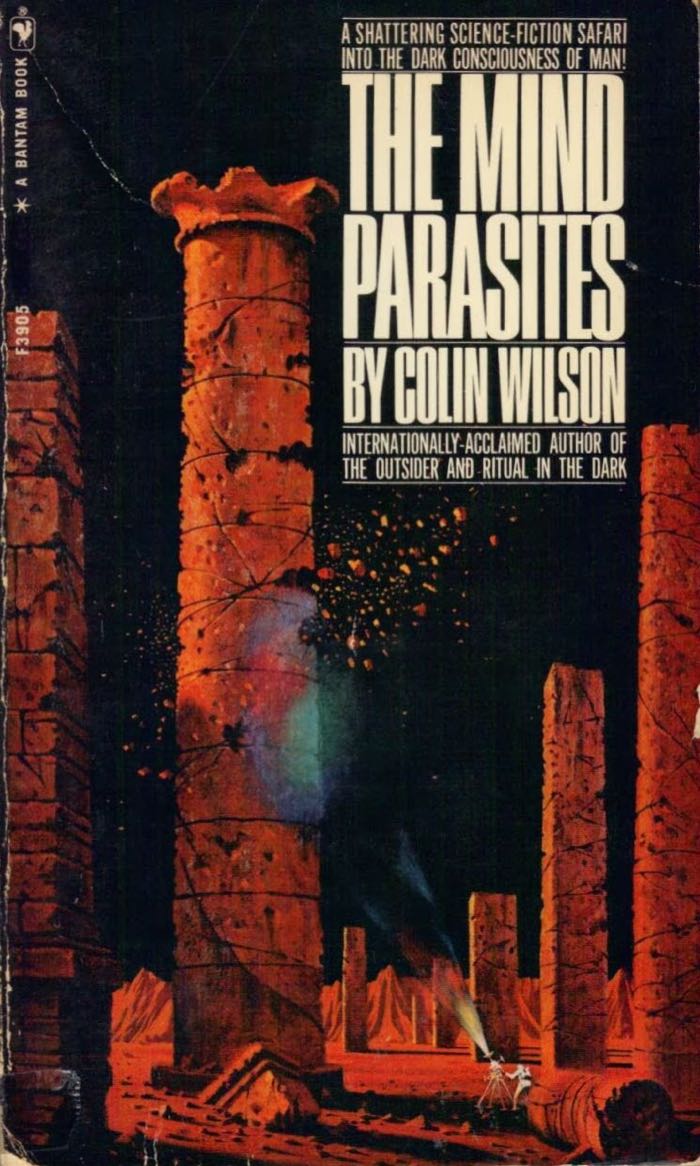The Mind Parasites
Reviewed date: 2005 Jun 20
Rating: 2
196 pages
Colin Wilson's Lovecraftian novel The Mind Parasites starts out with all the stock elements: the mad writings of a deceased professor, an inquisitive antiquarian, an archaeological expedition, and ancient ruins from a long-dead civilization.
Wilson is a more polished writer than Lovecraft so the first half of his story is excellent, if missing some of Lovecraft's trademark infusion of horror. The second half is where things get weird: the threat is revealed to be creatures that feed on the mind energy of men. These parasites sap man's creative energies, preventing him from using his whole mind to think clearly. All mankind is enslaved in a kind of stupor.
Dr. Austin and Dr. Reich discover the existence of mind parasites and break free from their restraints. Here the plot takes a cue from the writings of E. E. Doc Smith: Austin and Reich use their newly-unfettered minds to become virtual supermen. In mere days they surpass all the combined achievements of mankind--just as in E. E. Doc Smith's Skylark series, the super-scientists Dick Seaton and Martin Crane routinely invent and then mass-produce world-changing devices in impossibly short time-frames. In a manner reminiscent of Smith's Lensman series, Austin and Reich are able to communicate telepathically, to influence the minds of others, and even to take over and control animals and weak-minded men.
But unlike Smith's action-packed space operas, Wilson's story turns to philosophy. The crucial question is not the defeat of the mind parasites but the exploration of human consciousness and of the myriad possibilities available to the man who knows and fully understands his mind. Taking the time to defeat the mind parasites and to free the rest of humanity is an inconvenience to Austin and Reich, and they state as much.
The lack of attention to basic plot and the extraordinary emphasis on exploring consciousness not only makes a boring book, but renders irrelevant all the plot points in the first half of the book. The archaeology expedition? The ancient city of the 'Tsothogguans'? All meaningless. Even the mind parasites themselves--who seemed malevolent and ghoulish in the beginning of the story--end up as more of a annoyance than a true menace. The Mind Parasites has a lot of potential, but Colin Wilson squandered it by investigating consciousness rather than focusing on mankind's struggle to defeat the unearthly parasites.
